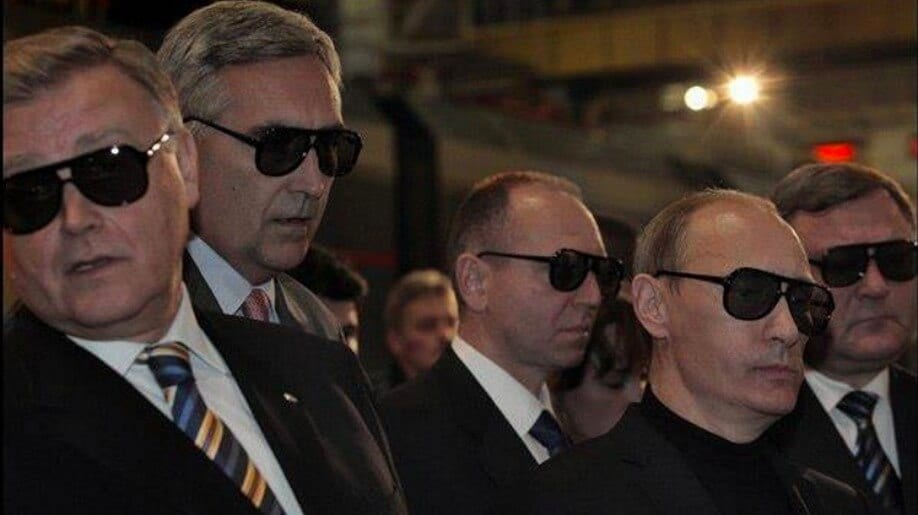France, Germany, and Italy are Russia’s main targets for its meddling in the European Parliament (EP) election, Estonia’s Foreign Intelligence Service (Efis) has warned in a new report.
“The Kremlin is likely to focus on the larger member-states – Germany, France, and Italy – where it can hope to obtain the most [friendly] mandates … and where some of the political parties have clearly expressed support for the current Kremlin policies toward the West,”- Efis said in its annual threat assessment published on 12 March, referring to the far-right AfD (Germany), National Rally (France), and League (Italy) parties.
Its methods are the same as those it already used at the US, French, and German elections in recent years.
Amid preparation for a potential military clash with NATO, which could be triggered by a pro-Western tilt in Belarus, “Russia supports its allies through Russian-controlled media, organises high-level meetings and visits that attract media attention, offers covert financial assistance, if necessary, discredits opponents (by stealing and leaking internal information), intentionally spreads false information in social media.”
Moscow’s objective is to turn the EP into an amplifier of its anti-EU propaganda. A pro-Russia EP bloc would help to “undermine the EU’s unity by sowing disorder and disbelief” in the European project, Efis said. It would also act as “a propaganda platform” to denigrate EU sanctions on Russia and to “convince its domestic audience that Russia is not alone and has considerable allies in the European political arena”.
The European Parliament vote is more vulnerable than national elections, it noted, because the “proportional election system… favours the inclusion of small and marginal political parties” and because the “typically low turnout makes it more likely that stronger-motivated political forces bring their supporters to the ballot boxes”.
The message of the last November symposium of the European Russian Forum hosted by Miroslavs Mitrofanovs, a pro-Russia MEP from Latvia, and “coordinated with… persons with close ties to the covert influence operations of the presidential administration of Russia,” was that “if Europe disregards Russia’s ‘justified interests’ in the ‘near abroad’, then Russia will be prepared to go to war”.
The event had “negligible impact”, Efis noted, but its bad news was backed up by menacing developments in Russian military deployments, it added.
Russia’s build-up of forces on its western borders, as well as its recent military drills, showed that it was “preparing for a possible war along a wide front … [and] practicing for an extensive military conflict with NATO”, the report noted.
The “likelihood of a worst-case scenario” was “slim”, Efis said. However, “if anything unexpected should happen to [Belarusian] president Aleksandr Lukashenko personally or to his regime, there will be a great risk of swift military action by Russia to prevent Belarus from becoming a pro-Western democracy,” it said.
It could also strike Baltic states in order to “shift the balance of military power” in the region in a conflict which would draw in NATO allies and could lead to attacks in the heart of Europe, Efis warned.
“A conflict between NATO and Russia would not be limited to military action in eastern Europe or the Baltic states, but would also involve Russian attacks on western European targets,” it added.
Russia’s Kalibr missile system, which it recently tested in Syria, and which it is placing on warships in the Baltic Sea, the Barents Sea, the Caspian Sea, and the Black Sea “can hit targets on almost the entirety of continental Europe”, Efis noted.
The developments come amid raw nerves in the Kremlin over domestic discontent due to economic hardship.
“According to information available to the Estonian Foreign Intelligence Service, Russia has practiced the use of its armed forces units against internal protesters,” it said.
The new level of aggression was visible in the fact “Russia is … taking less care to conceal its role in the war in Donbas [in eastern Ukraine],” Efis added.
It was also visible in its increasing recklessness in espionage operations inside Europe in recent times.
Russian spies and their agents were caught out in operations in Austria, Belgium, Estonia, Greece, Latvia, Lithuania, Macedonia, Montenegro, the Netherlands, Poland, Portugal, the UK, and Ukraine in greater numbers than usual between 2014 and 2018.
In Belgium, the home of the EU institutions and the NATO HQ, the military intelligence service, the so-called ADIV, recently caught one of its officers in passing classified information to a suspected Russian agent.
Russia, for its part, has denied, time and again, that it meddles in foreign votes or that it invaded eastern Ukraine.
It has also claimed that its military build-up is a reaction to NATO expansion in the region.
“There is no war between Russia and Ukraine at all. These are two … fraternal peoples,” Kremlin spokesman Dmitry Peskov said in January.
